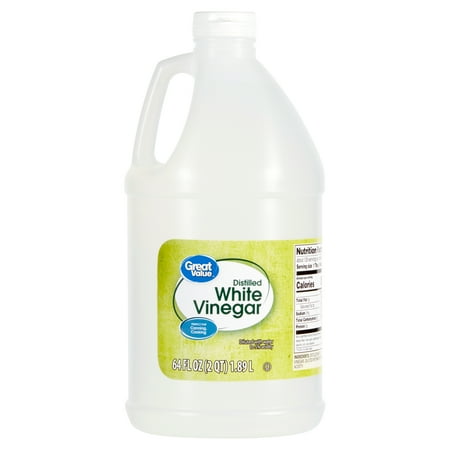How to do laundry with sensitive skin – 9 essentials that ward off flare-ups
Sensitive skin doesn't have to be a sensitive topic. These nine laundry essentials make tough cycles a little simpler
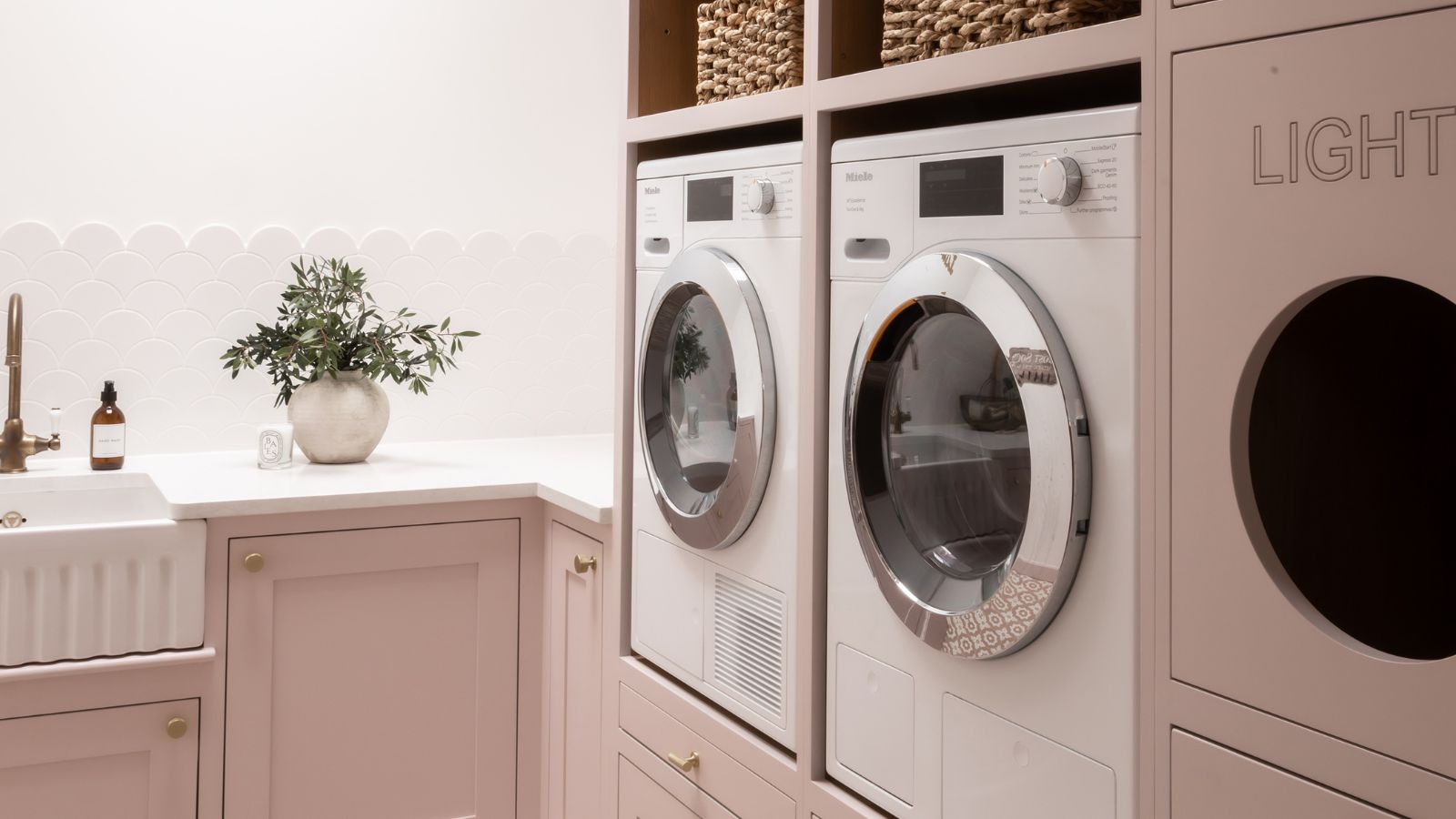

If you or anyone you have lived with has ever struggled with sensitive skin, then you know how strict you have to be with everything from your bedding materials to the cleaning products you use. The smallest amount of fragrance can sometimes be enough to set off a flare-up.
This begs the question of how to do laundry with sensitive skin without sacrificing the joy of fresh-smelling clothes and super soft linens
We spoke to top laundry experts and dermatologists to learn their sensitive skin secrets to help you get the perfect results that won’t leave you itchy or sore for days afterward.
How to do laundry with sensitive skin
From dry skin to contact dermatitis and inflammation, some of the most popular laundry detergents and softeners can contain chemicals that can damage your skin barrier. It is therefore critical to avoid common laundry mistakes and wash clothes in a way that avoids reactions and breakouts.
1. Use the right detergents
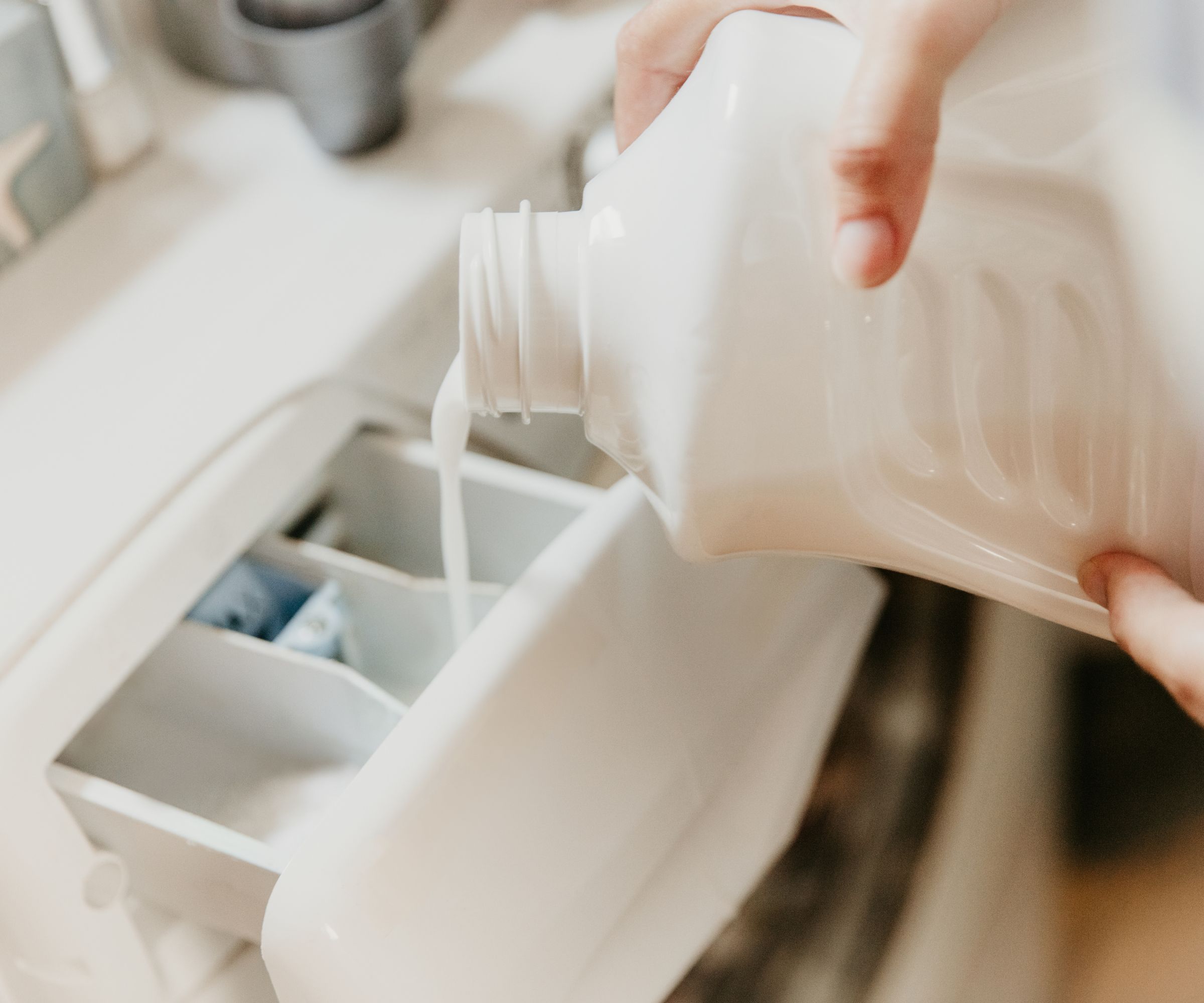
One of the most important laundry tips for people with sensitive skin is to invest in the best sensitive detergent you can afford.
Dr. Alain Michon, a clinical dermatologist and medical director at Project Skin MD Ottawa says, ‘You should opt for a specially formulated laundry detergent without any fragrance or dye, ensuring you use the correct amount when washing your clothes. Fragrance is a skin irritant. While some people may tolerate fragranced products, it's important to note that your skin can develop sensitivities over time. Fragrance-free detergents still leave clothes smelling clean without any added sensitizing ingredients.
‘Hypoallergenic is another common word used to market these products, which suggests the ingredients are less likely to cause allergic reactions by excluding chemicals that commonly cause various flare-ups,’ he continues. ‘This all-encompassing term often means there are no fragrances or dyes in the product as well. Similarly, "free-and-clear" refers to perfume and dyes, the two most common irritants. It can be a bit ambiguous, however, so always check the actual ingredient list,’ he advises.
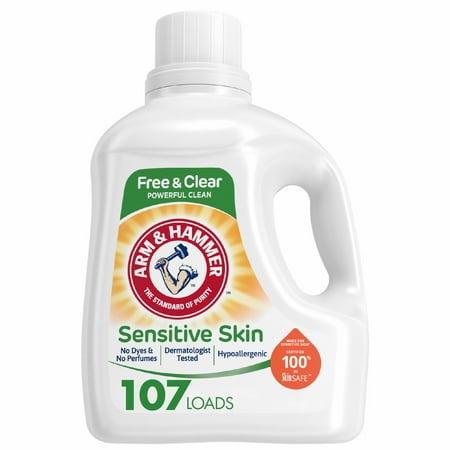
‘Arm & Hammers Free and Clear detergent for sensitive skin is certified in partnership with the Mayo Clinic to be safe for common skin allergens. It contains no dyes, perfumes, or parabens and has been dermatologist-tested,’ Dr. Alain Michon assures.
2. Don’t use too much detergent
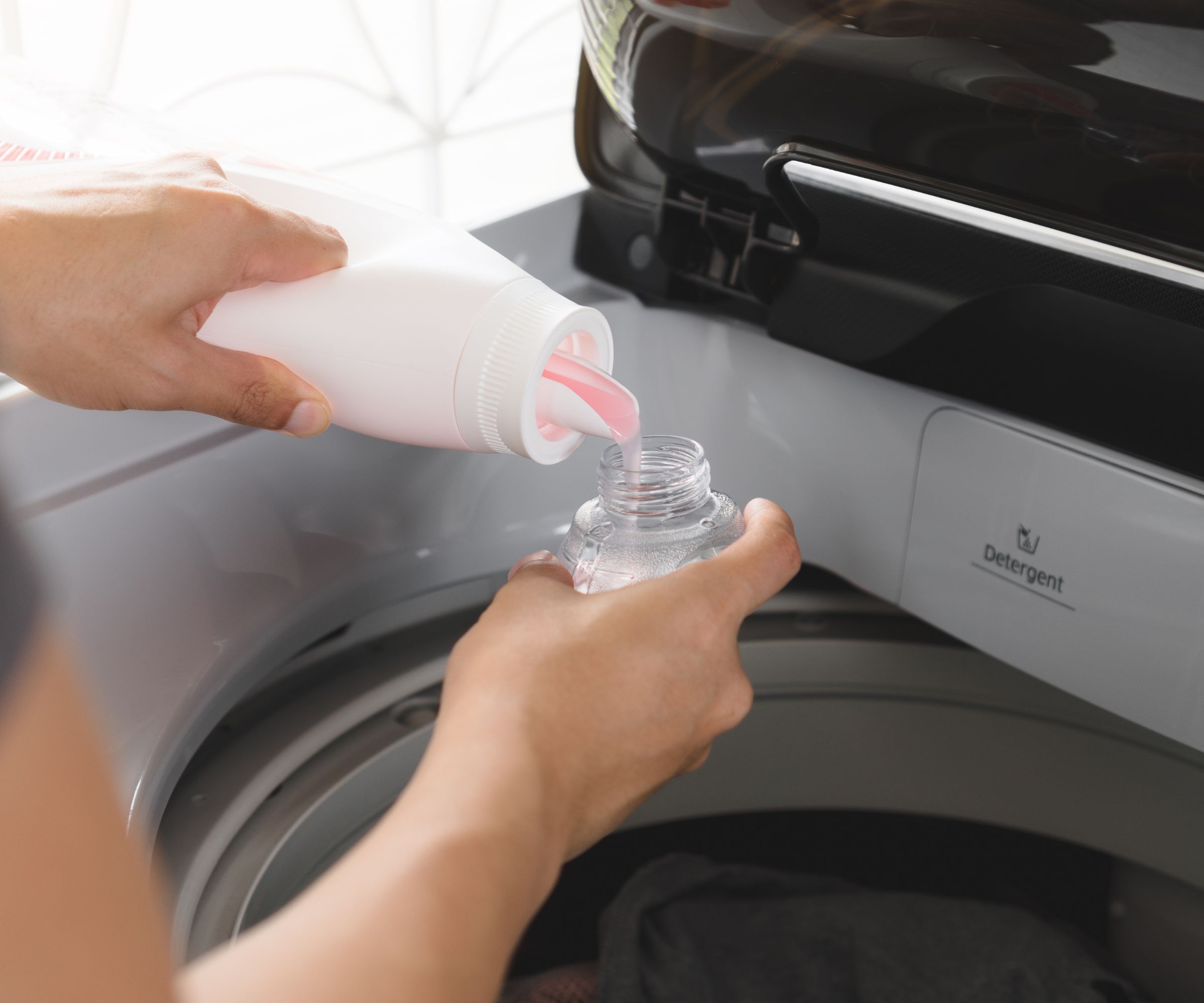
Cutting down on laundry detergent is a good idea for all of us, but it is especially poignant for people with sensitive skin.
Dr. Alain Michon, medical director, explains, ‘Laundry detergent is generally rinsed away in your washing machine, leaving minimal risk for skin irritation. However, if you use too much detergent, have sensitive skin, and because detergent contains surfactants, it may irritate your skin. Be sure to keep in mind the guide listed for the proper measurement based on the load size and type of washer.
‘You can also run an extra rinse cycle to ensure no detergent remains on the fabric,’ he adds. ‘If you're prone to doing an entire load of laundry for a few articles of clothing, it's best to use a liquid or powder detergent over pods, as you can control the amount of detergent you use.’
If you have used too much detergent and a rinse cycle hasn’t been rough to wash it off, consider using white vinegar in laundry. One cup in the detergent drawer and a regular wash cycle will help to strip the residue off of the fabric.
3. Use cotton gloves when handling wet laundry
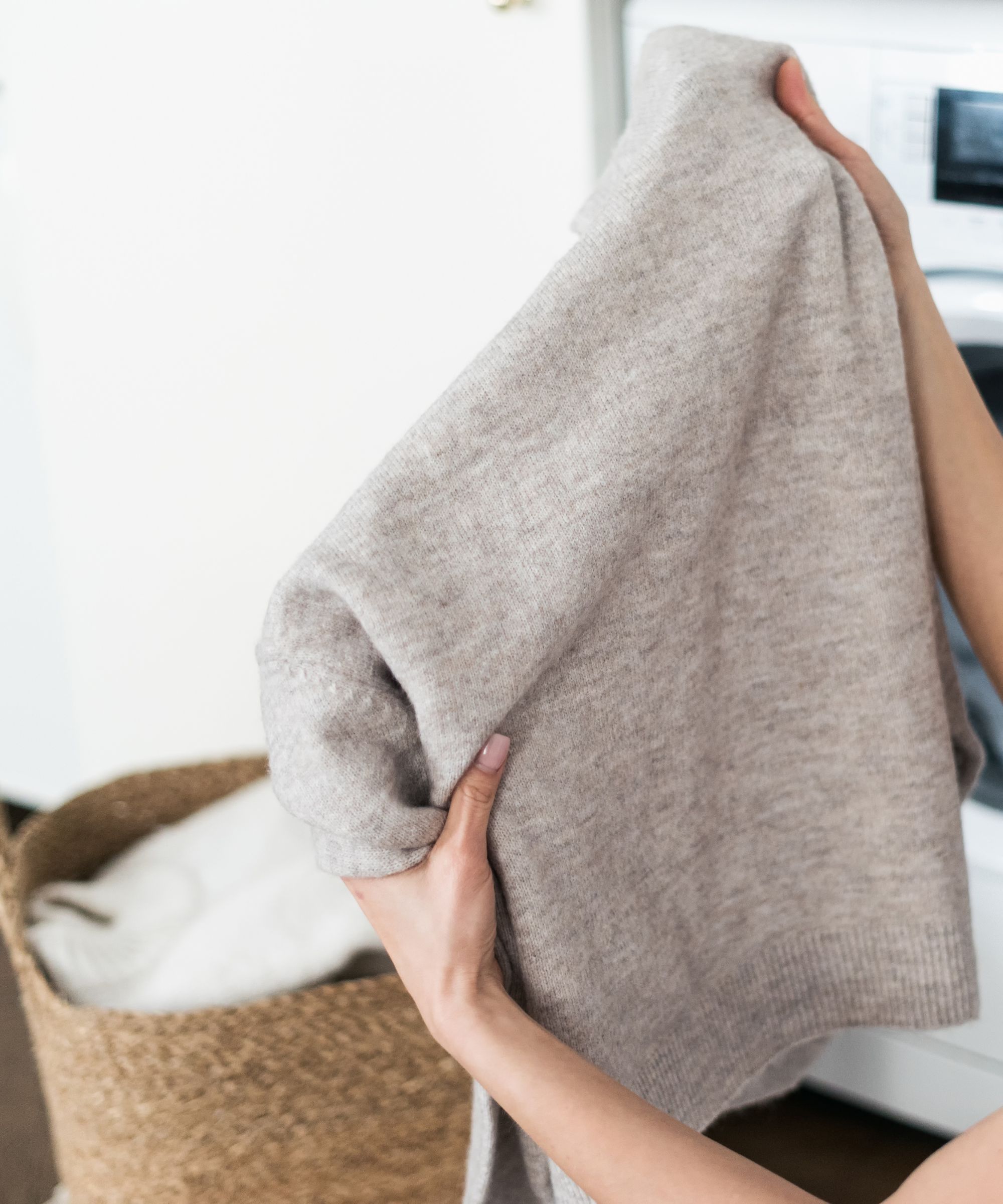
Sorting clothes for laundry and drying seems like a basic task, but for people with sensitive skin, the damp fabric can be enough to cause a flare-up. Stacey Tapping, CEO and owner of Beauty Sculpting Room recommends, ‘wear[ing] gloves when handling wet laundry, just to be doubly sure.’
Your best bet is a pair of 100% pure cotton gloves, available at Walmart as rubber or latex cleaning gloves that can irritate sensitive skin.
4. Keep your washer and dryer clean
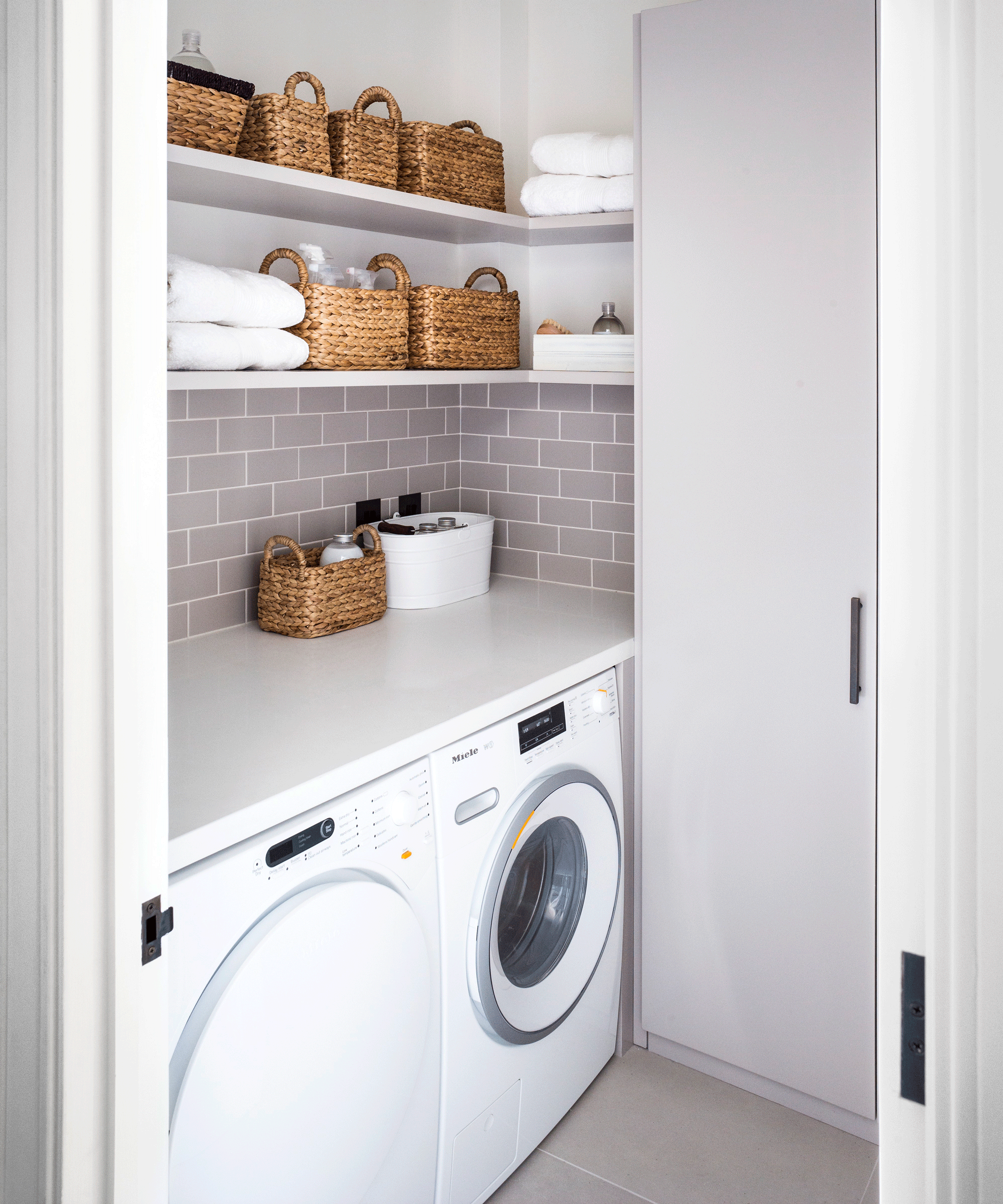
Built-up residue in a washing machine or tumble dryer can leech onto your clothing, rendering your free and clear detergents pointless. Because of this, it is best to clean your washing machine and dryer regularly, especially if you share them with family members who use fragranced products.
Cleaning with vinegar is your best bet here, as it allows you to kill mold and break down soap residue without the need for additional harsh chemicals.
5. Use natural stain removers
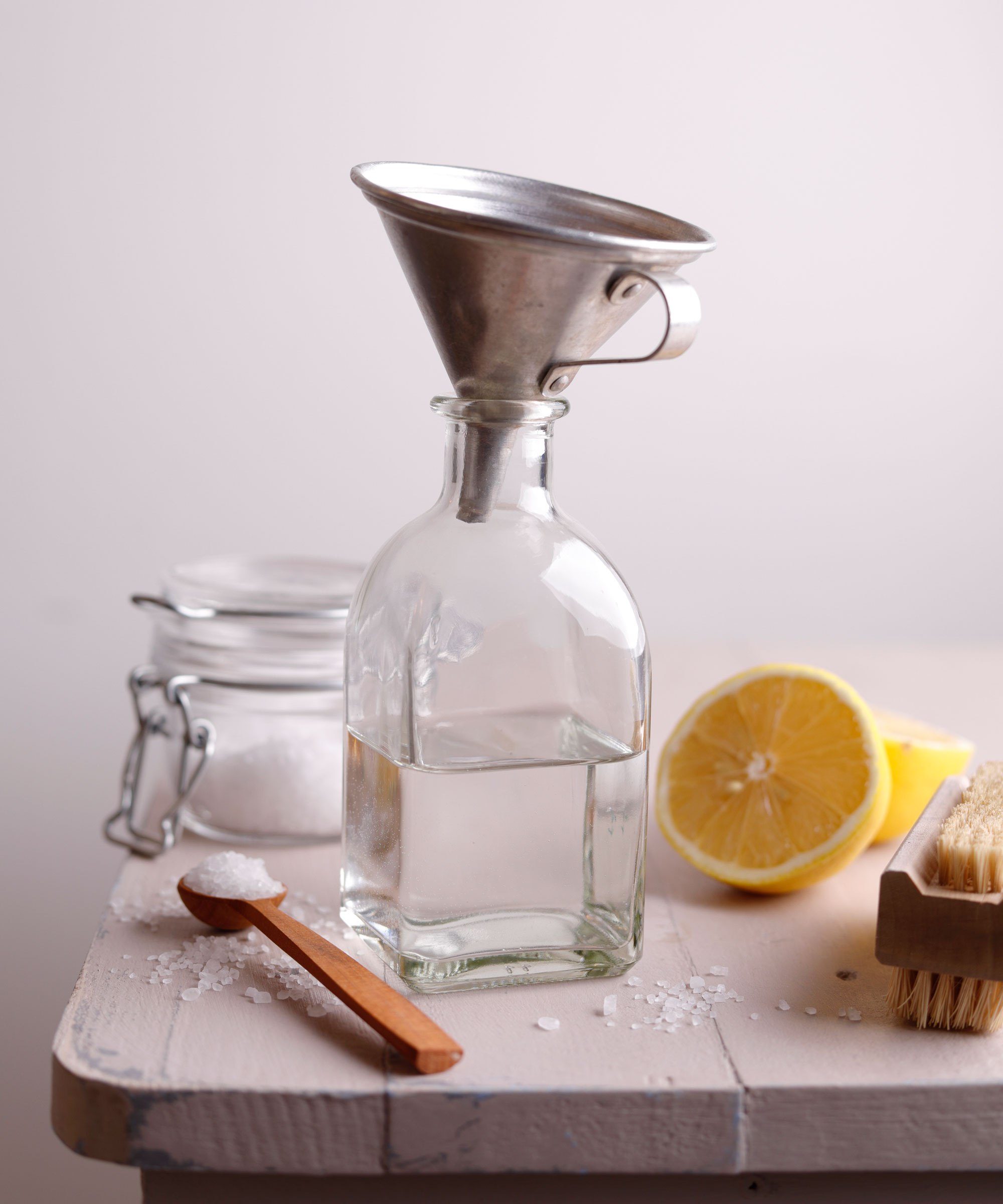
When a stain sets in, the most common approach is to grab a commercial stain remover and leave the item to soak. If you have very sensitive skin, however, this can be a cause for disaster.
The solution? Use a natural stain remover, such as cleaning with baking soda. Mix the baking soda into a paste with either warm water or vinegar and allow it to sit over the stain for at least 30 minutes and up to overnight before washing as normal. Arm & Hammer Baking Soda, from Walmart, is 100% pure and comes in extra large containers, ready for all your household cleaning needs.
6. Avoid softeners and dryer sheets
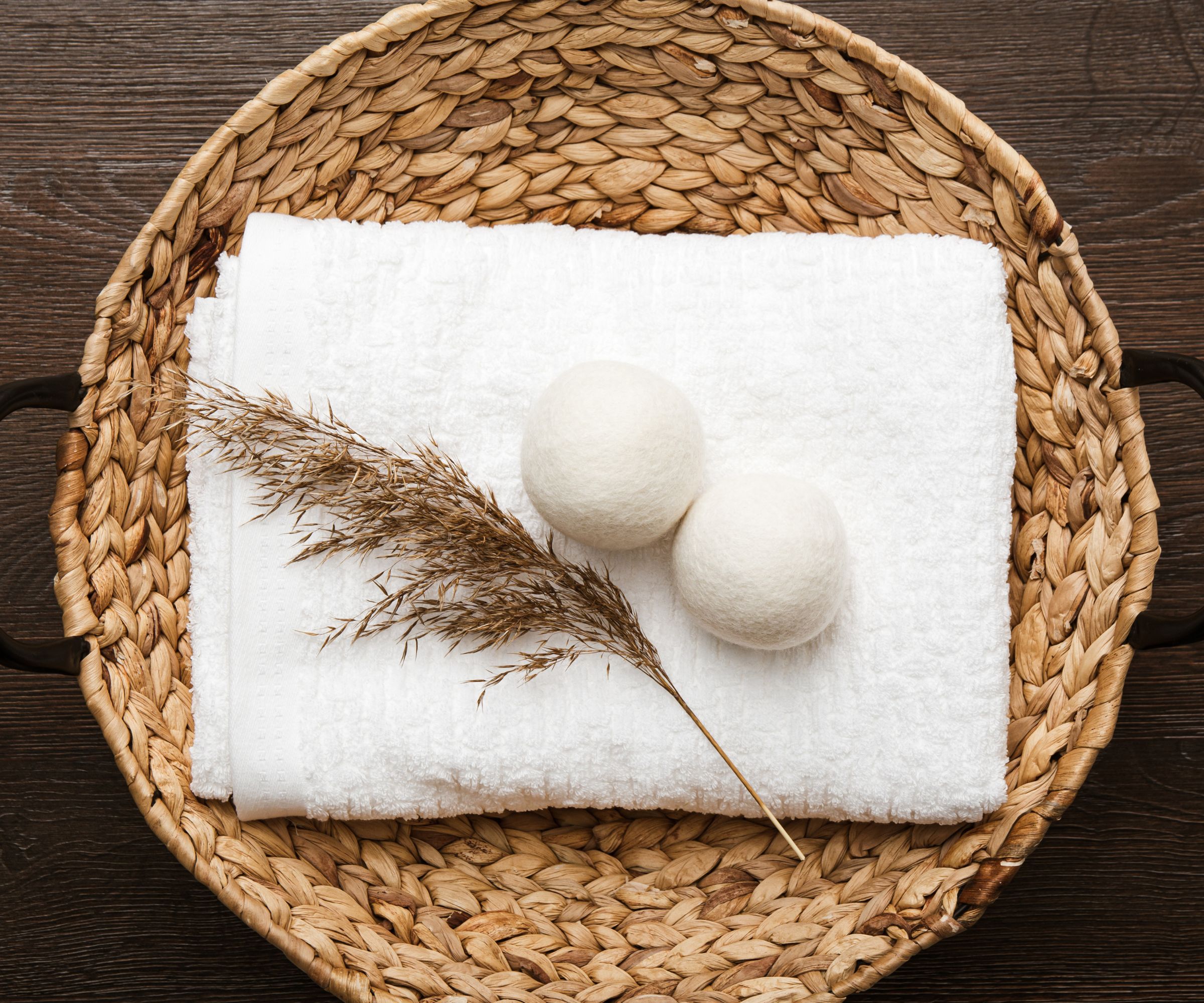
It is not just detergents that can wreak havoc on sensitive skin. Other laundry additives such as softeners and dryer sheets can also irritate. But what do you use instead of dryer sheets? Wool dryer balls, available at Walmart, says Dr. Hannah Kopelman, a dermatologist at Kopelman Aesthetic Surgery.
‘Fabric softeners are often loaded with fragrances and chemicals that can be very irritating to sensitive skin. I typically advise my patients to avoid them altogether. Instead, I suggest using wool dryer balls, which help reduce static and soften clothes naturally without any added chemicals.’
7. Wash clothes separately from other family members
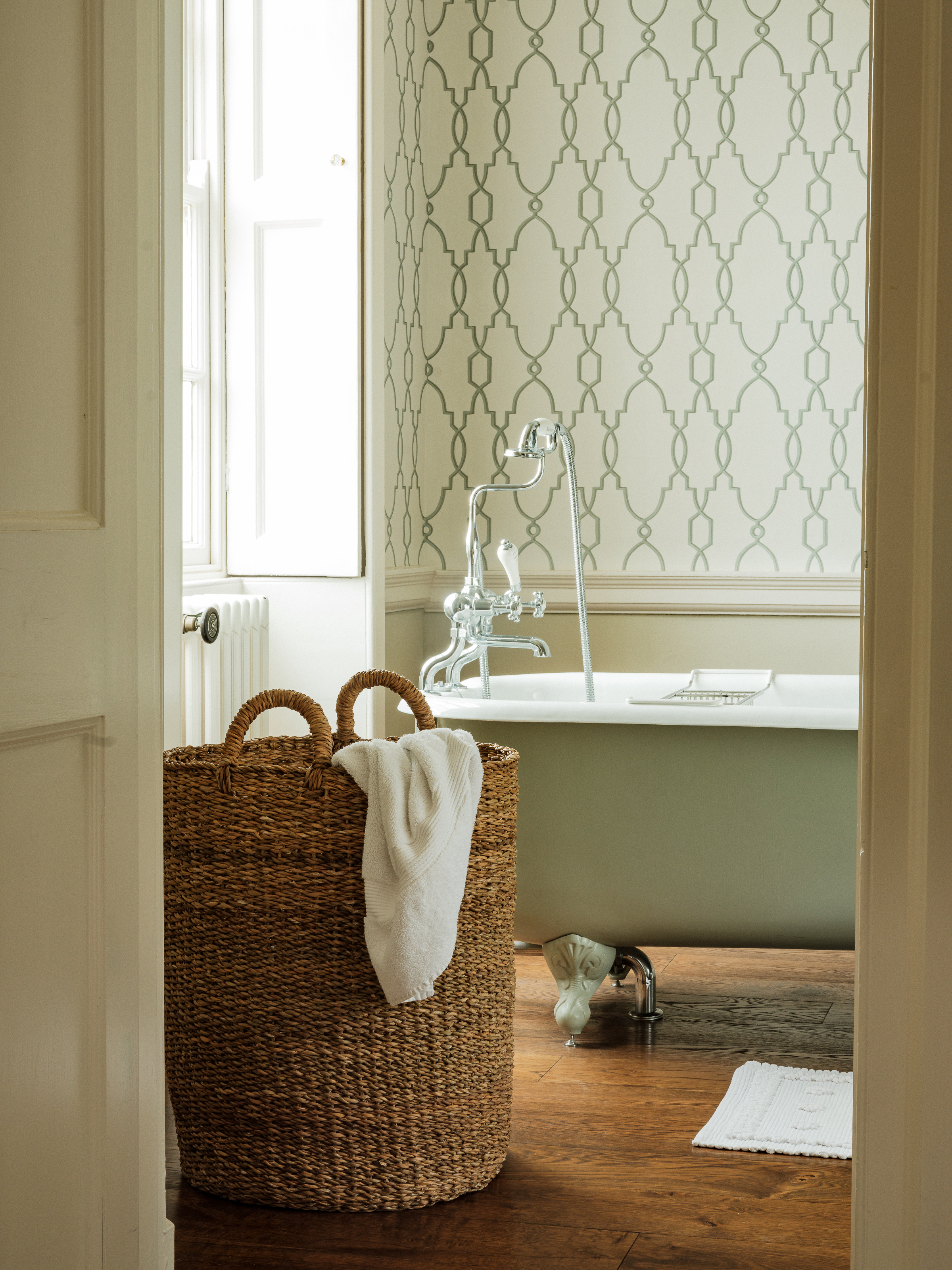
The question of whether you need to separate laundry or not is an age-old debate. When it comes to laundry for sensitive skin, however, it is an absolute yes.
Will Cotter, cleaning expert and COO of Happy Cleans says, ‘Keep synthetic fabrics away from natural fibers like cotton or bamboo in your wash. Synthetics can cause friction and irritation, while natural fibers are usually gentler. This includes bath towels, which are usually the culprits for lint. It absorbs more detergent, which could irritate sensitive skin when they’re used.’
If you have other household members who do not have the same skin concerns, it can be beneficial to wash sensitive skin items separately from those too. That ensures there is no cross-contamination of products and materials.
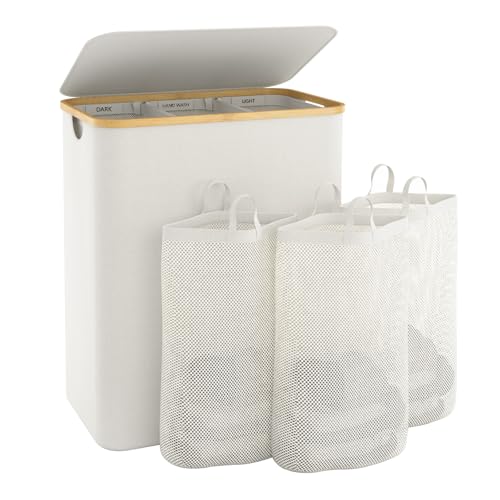
Make separating household laundry simple with this three way divided laundry hamper. Use it to split up lights, whites, and colors, divide by cycle type, or split up each household members laundry.
8. Invest in a quality washer
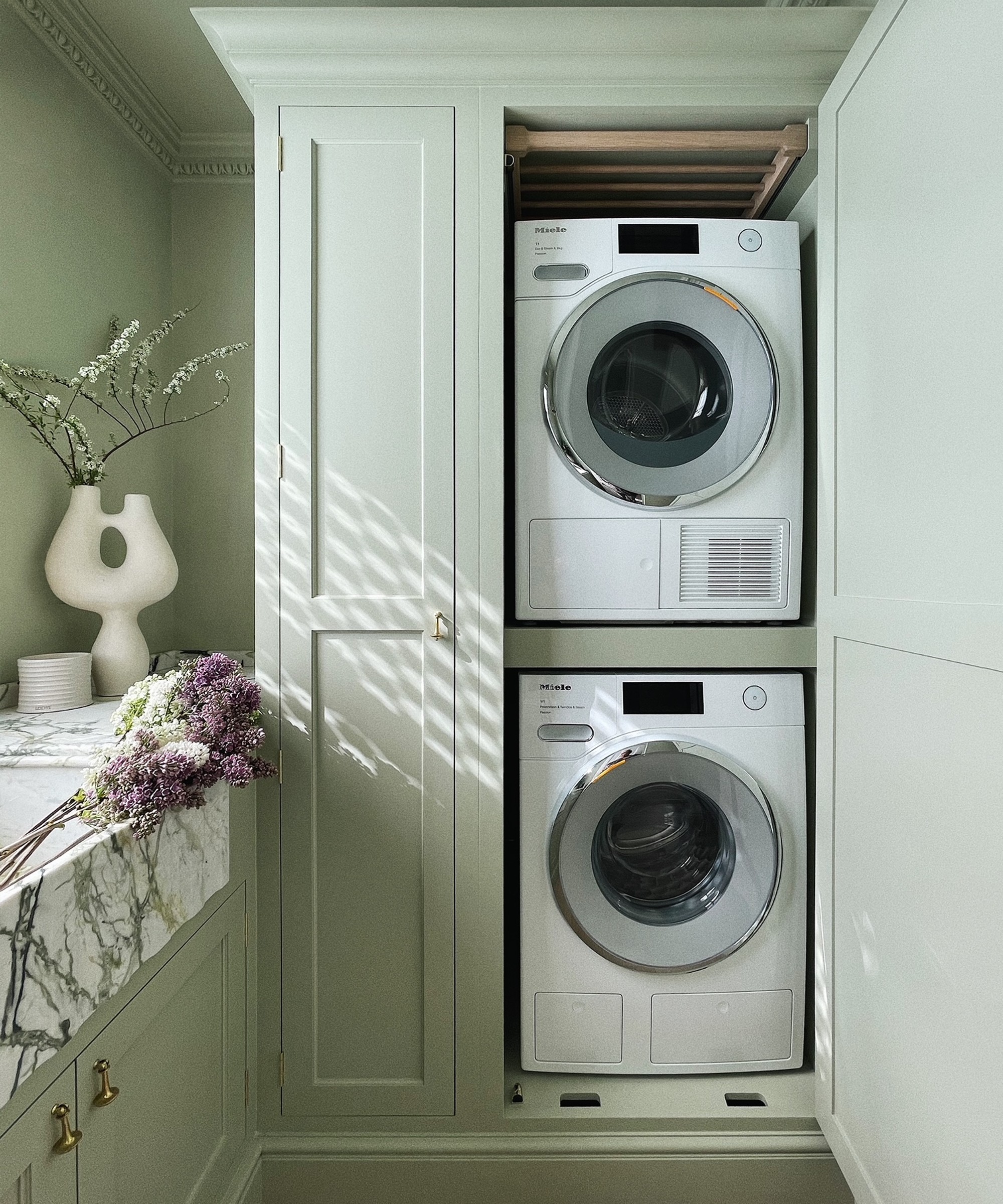
Cleaning expert Will Cotters suggests upgrading your washing machine if you have the funds and scope to do so. ‘If you can swing it, the best washing machine is one with multiple rinse options and gentle cycles,’ he says.
‘And don’t even think about overloading it,’ he adds. ‘If you cram too many items, they might not be washed and rinsed properly. A good tip is to make it about three-quarters full.’
9. Wash in cold water
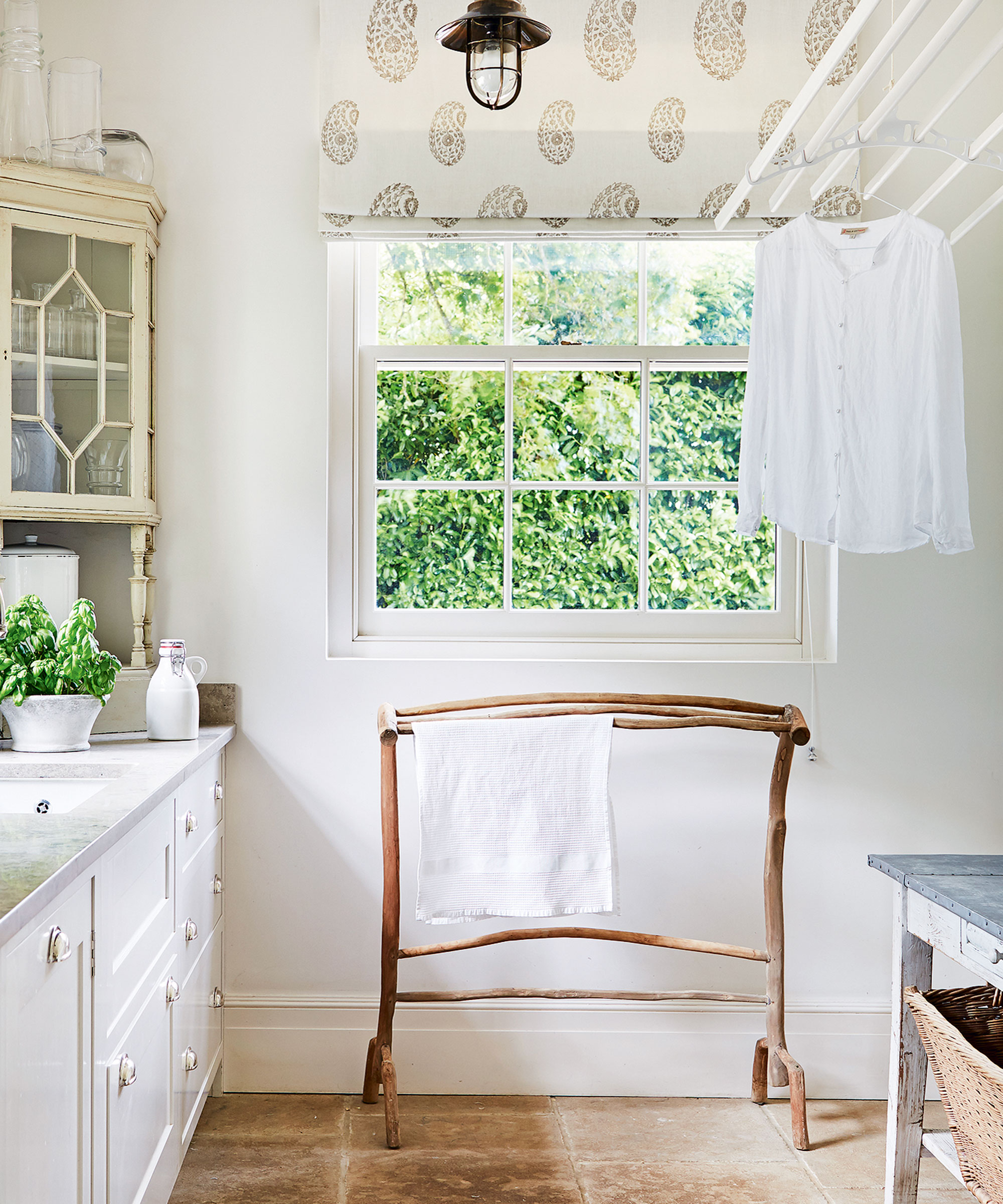
Washing clothes in cold water is another great tip for those of us with sensitive skin.
Will Cotter, a cleaning expert explains, ‘You might doubt this tip, thinking hot water is better for killing bacteria. But it can set stains and damage delicate fibers. Cold water is gentler on fabrics and skin. Opting for the gentle cycle is also a smart move. If there’s less agitation, there’s less chance of wear.’
You might expect the clothes you bring home to be fresh and clean, but if you have sensitive skin, it is always worth washing your clothes and linens as soon as you get them through your door, says cleaning expert Will Cotter. ‘Those fresh-off-the-rack garments might have chemicals and/or bacteria from manufacturing that can be removed with a quick wash. And while you’re at it, inspect and remove those irritating tags. For seams, cut them out too or fold them down to avoid scratching.’
Sign up to the Homes & Gardens newsletter
Design expertise in your inbox – from inspiring decorating ideas and beautiful celebrity homes to practical gardening advice and shopping round-ups.

Chiana has been at Homes & Gardens for two years and is our resident 'queen' of non-toxic living. She spends most of her time producing content for the Solved section of the website, helping readers get the most out of their homes through clever decluttering, cleaning, and tidying tips. She was named one of Fixr's top home improvement journalists in 2024.
-
 Orange and green is the bold color pairing quietly transforming homes in 2025 – here's 4 reasons why
Orange and green is the bold color pairing quietly transforming homes in 2025 – here's 4 reasons whyInterior designers are making the orange and green combination work wonders – this is how you can too
By Sophia Pouget de St Victor Published
-
 This Michelle-Pfeiffer-approved chair is made of a forebodingly unusual material, opening the debate: Is it a rustic stunner, or a danger to sitters?
This Michelle-Pfeiffer-approved chair is made of a forebodingly unusual material, opening the debate: Is it a rustic stunner, or a danger to sitters?The actress took to Instagram with a chair made of a controversially sharp material – and fans are unsure of how they feel about it
By Sophie Edwards Published
-
 How to clean a patio – 6 different methods, and when you must use a chemical cleaning agent
How to clean a patio – 6 different methods, and when you must use a chemical cleaning agentFrom manual scrubbing, natural solutions or calling in the pros, industry experts reveal the benefits and considerations of each method
By Andy van Terheyden Published
-
 5 surprising but brilliant ways to clean with old socks – from perfectly buffing stainless steel to deterring pests naturally and more
5 surprising but brilliant ways to clean with old socks – from perfectly buffing stainless steel to deterring pests naturally and moreTackle dust in tricky corners, clean your mirrors and even banish bad odors with those rogue single socks
By Andy van Terheyden Published
-
 5 things people with clean upholstery always do – simple, quick and oh-so-effective
5 things people with clean upholstery always do – simple, quick and oh-so-effectiveEnsure your furnishing looks clean year-round with these expert tips
By Seraphina Di Mizzurati Published
-
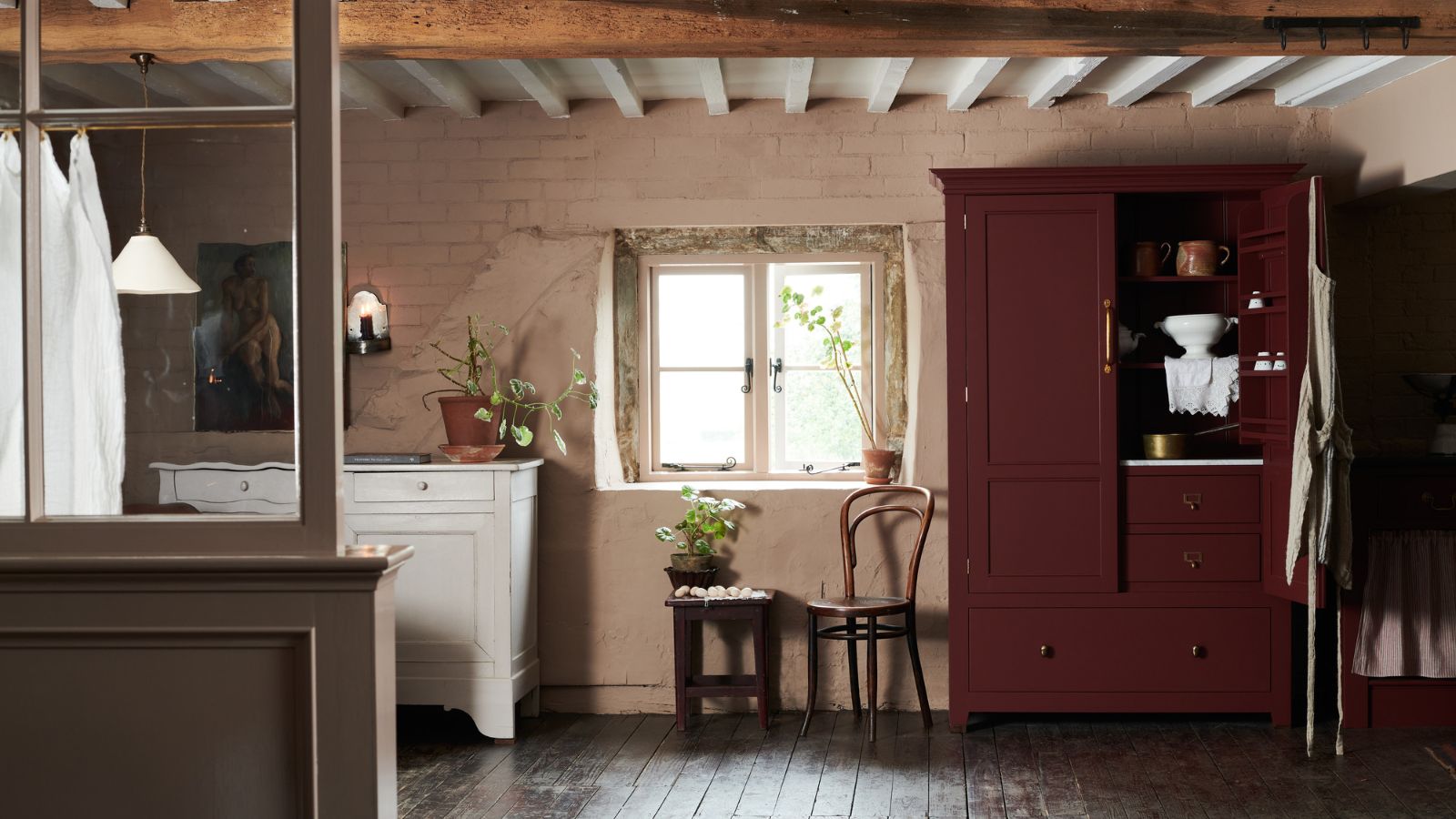 'Wick away the ick' – 6 things people with clean laundry rooms always do to make this hardworking space shine
'Wick away the ick' – 6 things people with clean laundry rooms always do to make this hardworking space shineThese tips on how to clean your laundry room will banish grime
By Seraphina Di Mizzurati Published
-
 How safe are carpet deodorizers? As a seasoned vacuum tester, I urge you to try alternative methods
How safe are carpet deodorizers? As a seasoned vacuum tester, I urge you to try alternative methodsNatural cleaning is always the answer
By Dan Fauzi Published
-
 'The world will not end' – 5 cleaning habits to quit for a happier, easier life, and what to do instead
'The world will not end' – 5 cleaning habits to quit for a happier, easier life, and what to do insteadGet your home sparkling, minus the stress
By Ciéra Cree Published
-
 9 things you can clean with glycerin – this cheap and natural cleaner is perfect for indoor and outdoor use
9 things you can clean with glycerin – this cheap and natural cleaner is perfect for indoor and outdoor useFrom patio furniture to silverware, this hydrating and gentle cleaning agent will work miracles
By Ciéra Cree Published
-
 How to clean a terrazzo floor in 5 steps – expert tips to scrub, shine, and seal this sparkling floor finish
How to clean a terrazzo floor in 5 steps – expert tips to scrub, shine, and seal this sparkling floor finishAvoid damage and protect it's shine with these expert tricks
By Chiana Dickson Published
